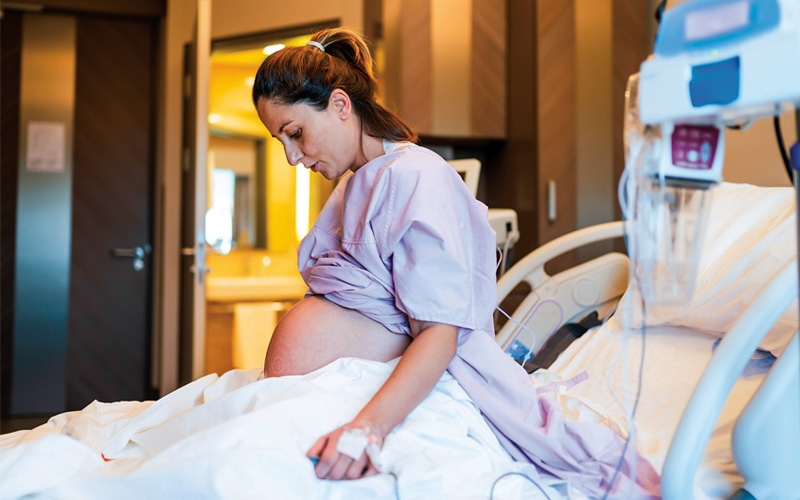You’ve carefully thought through your birth plan and chosen the right support people, but another important decision to make is whether or not you’ll want pain relief during labor and delivery.
An epidural is the most common type of pain relief used during labor, and it’s best to be educated, have a plan and discuss with your partner or coach in advance.
“Choosing whether or not to epidural is a personal choice,” says board-certified anesthesiologist Gregory de Cardona, DO, with Grand View Anesthesia Associates. “I encourage expecting moms to talk with their OB/GYN, an anesthesiologist and a support person to determine the best course for them.”
What is an epidural?
It’s an injection of medication into an area of your back called the epidural space. To administer an epidural, an anesthesiologist will place a needle and catheter into your back so you can receive a continuous infusion of local anesthesia. “An epidural targets the nerves that affect the pelvic area to help relieve pain during labor,” Dr. de Cardona says. You will still be able to bear down and push your baby through the birth canal.
In some circumstances, an epidural may not relieve all of your pain, but it will allow you to better control the level of discomfort you may feel. “At Grand View Health, we offer patient-controlled epidural analgesia,” Dr. de Cardona says. “This means moms have the ability to push a button on a pump to give themselves additional medication if needed, but in some cases, epidurals may slow down the birthing process slightly.”
Epidurals are primarily for vaginal births. While an epidural may help with a C-section birth, a spinal block is the preferred method of pain relief for C-sections. Epidurals do not increase the chance for C-section births. Minor side effects from an epidural can include a decrease in blood pressure, leg heaviness, back soreness or a headache.
Making the right choice for you and your baby
“It’s very important for us to provide moms with an experience that most closely mirrors their birth plan while also putting the safety and well-being of moms and babies first,” Dr. de Cardona says.
Some moms want a natural childbirth and will therefore not choose to have an epidural. Women who suffer from bleeding or blood-clotting disorders, have a history of back surgery or have certain neurological conditions may not be candidates for an epidural and should discuss these conditions with their obstetrician and anesthesiologist as early as possible.
“Research and studies show that the amount of medication used in an epidural is so small compared to intravenous pain medication that it does not cause any harm to the baby,” Dr. de Cardona says.
If you choose to make an epidural a part of your birth plan, let your providers know. The team at the Birth and Family Center at Grand View Health will follow your plan. You’ll also have 24/7 access to anesthesiologists in the hospital. “We’re always here to answer your questions, make sure you’re comfortable and keep you safe,” Dr. de Cardona says.
Learn more about the Birth and Family Center at Grand View Health. Visit GVH.org/maternity.

